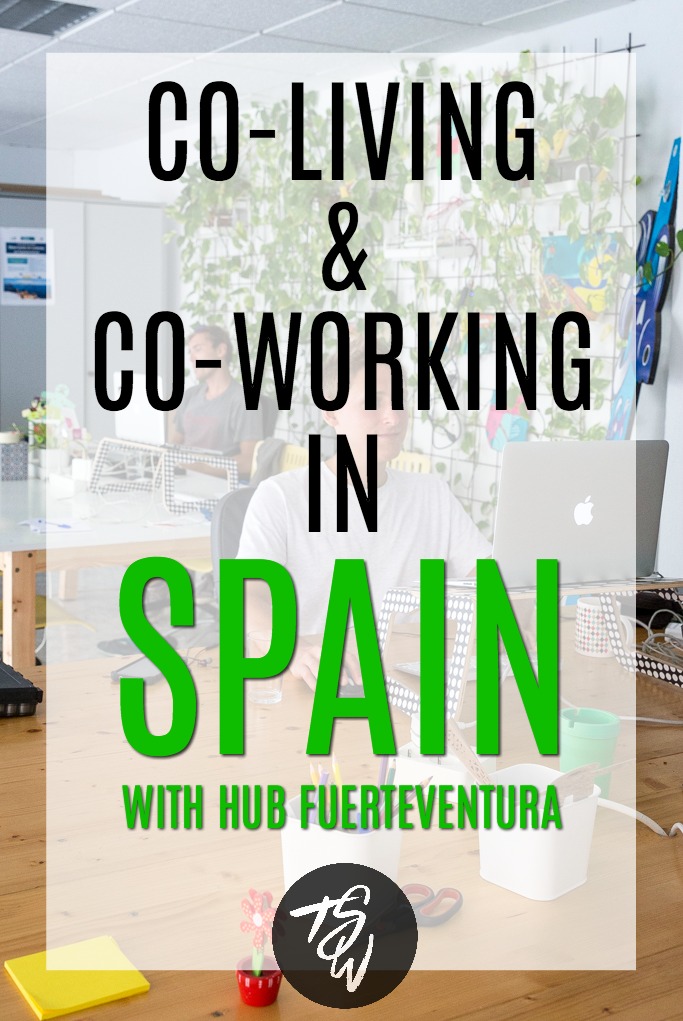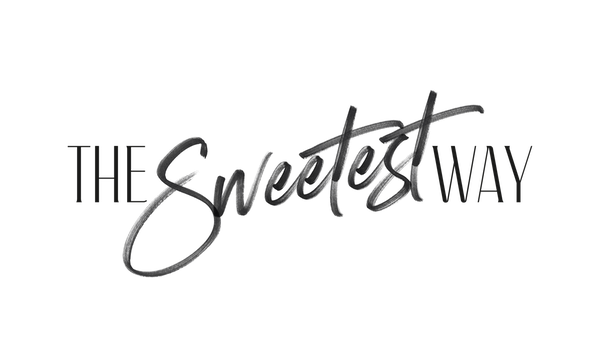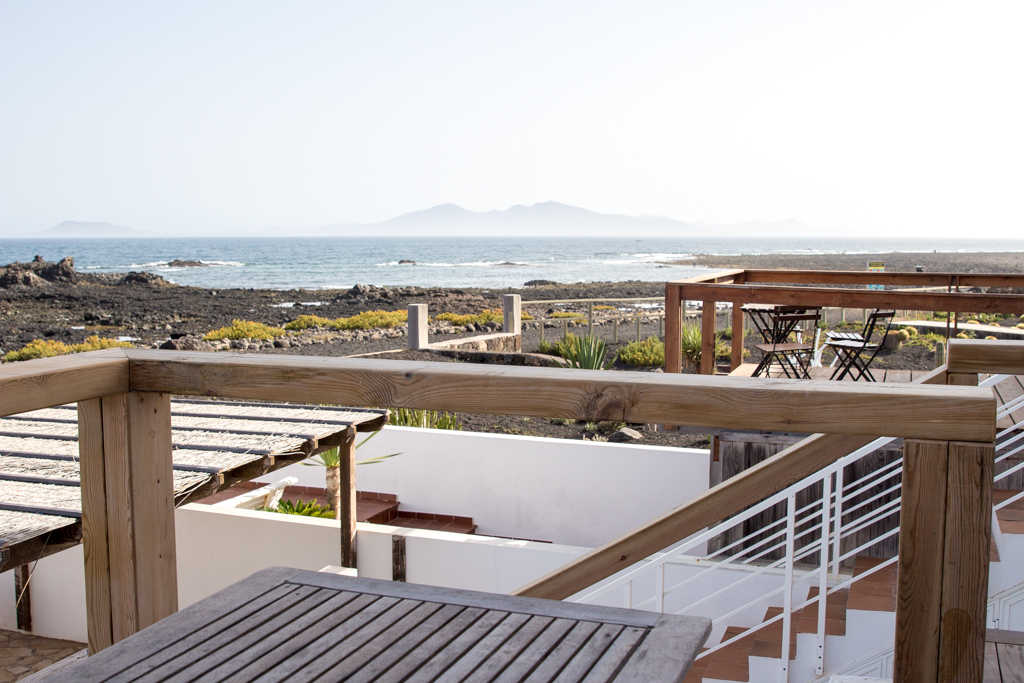As my flight drew closer and closer to the island of Fuerteventura, the second-largest of Spain’s Canary Islands, I couldn’t help but wonder if we’d been rerouted to Mars by mistake.
I was headed for the town of Corralejo on the island’s northern shore to spend a month co-living and co-working with Hub Fuerteventura, a place I’d discovered just a few months prior while researching co-living spaces for my eBook on location independence. I’ll be the first to admit, though–when it came to the island itself, I had little idea of what to expect. I’d only made the decision to head south (from Stockholm) a week or so earlier and didn’t have much time for research prior to my arrival.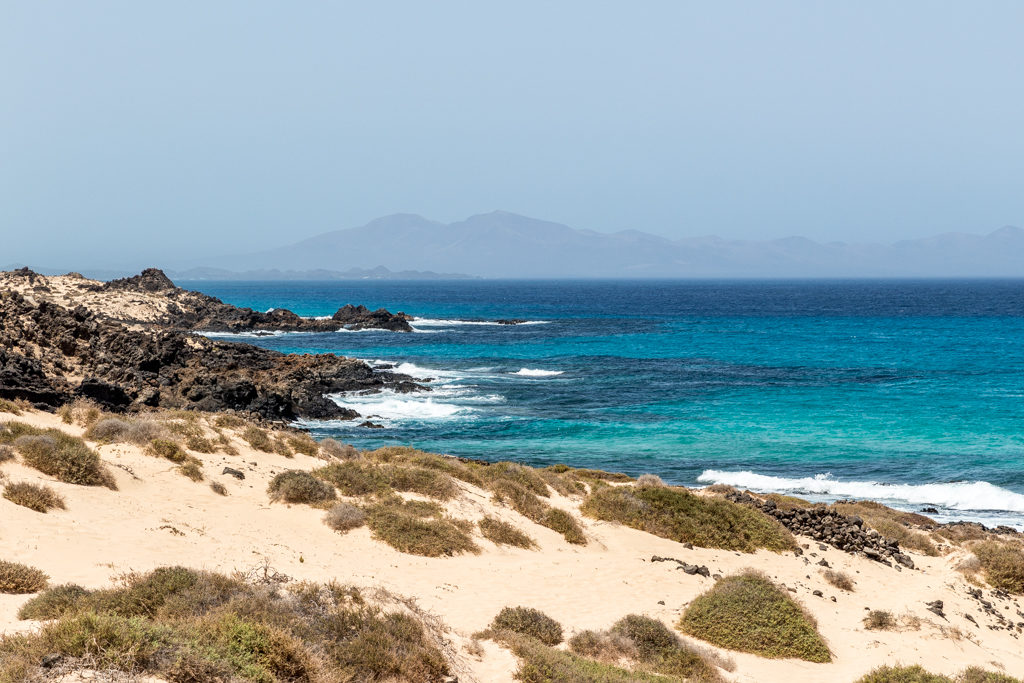
This was an experiment for me; for a long time, I’d been feeling lonely as a result of my nomadic lifestyle. I found that it rarely allowed for the development of deep and meaningful human connections and I wanted to see if co-living and co-working could somehow provide the community and sense of belonging that I’d been lacking for so long.
I also wanted to see what co-working was all about and whether I would benefit from having a more focused working environment and the potential for collaboration with fellow nomads and creatives. There were plenty of co-living spaces out there to choose from, but for some reason, Hub Fuerteventura called to me in a way none of the others had.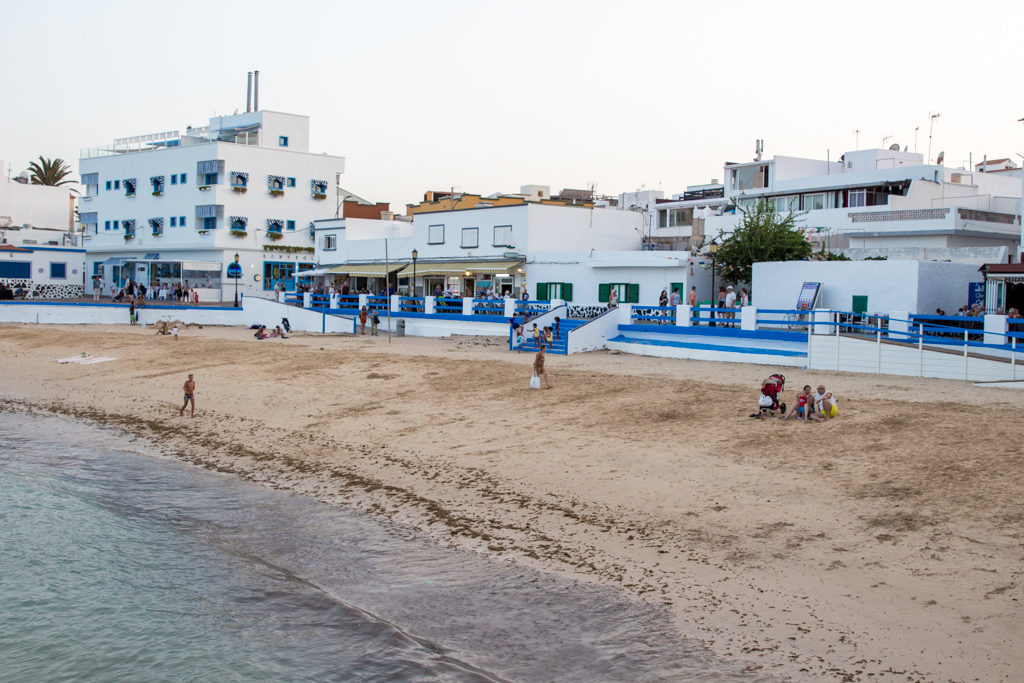
There was a lot riding on this experience, and as far as I could tell, I was on another planet. Or Germany. My flight from Berlin that day was just one of many direct flights to Fuerteventura from Deutschland, I discovered; the island is a popular destination for German tourists so rather than Spanish or even English as I exited the airport, I received a friendly-yet-confusing Danke schön!
It was easy enough to arrive in Corralejo from the airport near Puerto del Rosario. Two bus rides, roughly an hour and a half, and less than $5 later and I was on the doorstep of Hub Fuerteventura with suitcase in tow where I would meet with Sebastian, the owner of the co-working space (more commonly known as “The Hub”) and a Barcelona native.
Related post: The Digital Nomad’s Packing List: Tech & Accessories I Can’t Travel Without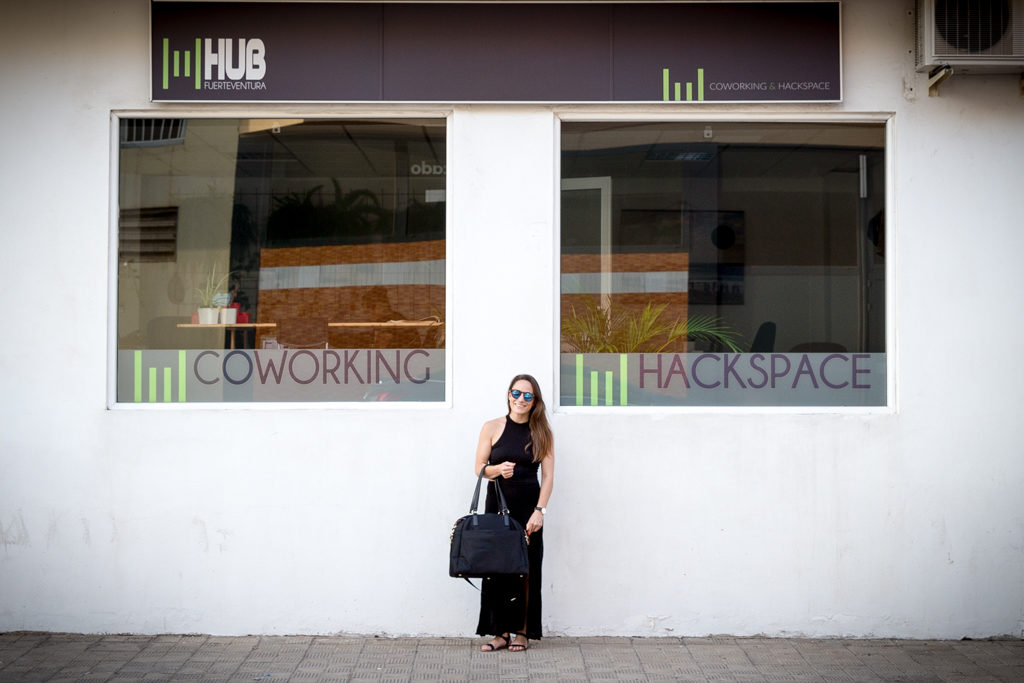
He gave me a quick initial tour of the co-working space before leading me to my accommodation and giving me a rundown of everything there was to do, see, and most importantly eat in Corralejo, a former fishing village that’s gradually grown into one of Fuerteventura’s main tourist towns.
While I was excited by the wealth of possibilities on the island, I had really sought out Hub Fuerteventura so I could do some serious work and reconciled early on with the fact that I probably wouldn’t get around to doing it all. I made an effort to reserve the weekends for explorations and the weekdays for work. This method served me well for the most part, but I remained flexible and occasionally took afternoons off to do something fun or stayed in on weekends to make up for the time I’d missed during the week.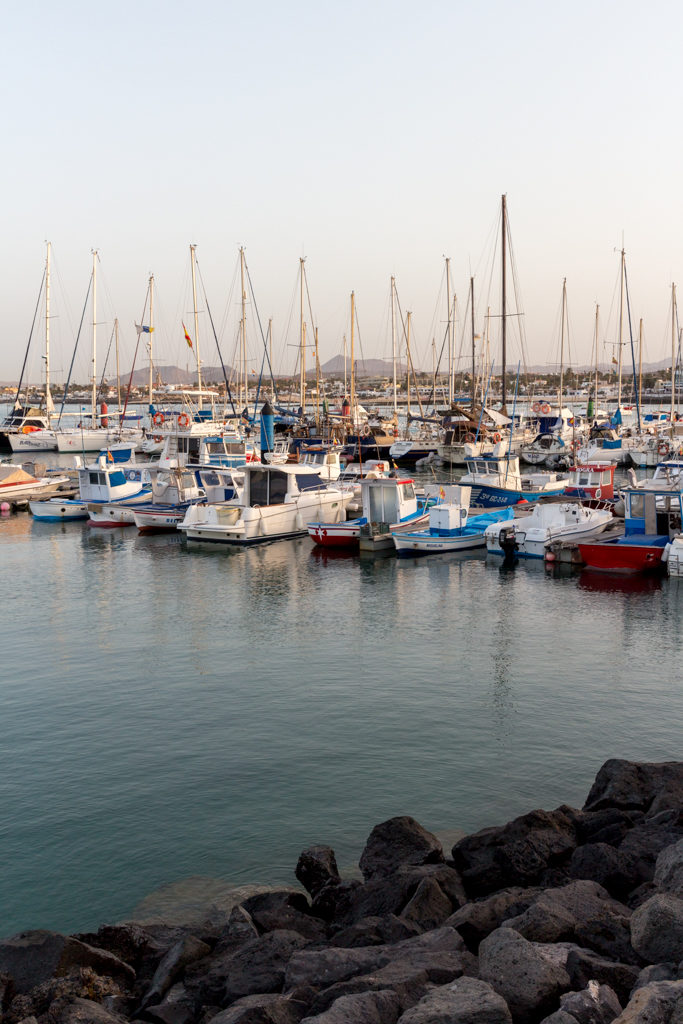
By the end of the month, I’d seen everything I’d hoped to see and made some big strides with my work. The distinct lack of nightlife in Corralejo freed me from the pressure of going out all the time; my alcohol consumption dropped considerably compared to previous months and when I did drink, I typically chose to stay home with a glass of wine.
I jogged and did yoga regularly (I opted to buy my own yoga mat for €10 rather than joining the local classes to save myself money). I cooked most of my meals but enjoyed many of the best restaurants in town as well, most of which offered reasonable prices, even for a tourist island. I ate better than I had in a long time, thanks in part to the many vegetarian-friendly restaurants available in Corralejo (I stopped eating meat in May of this year).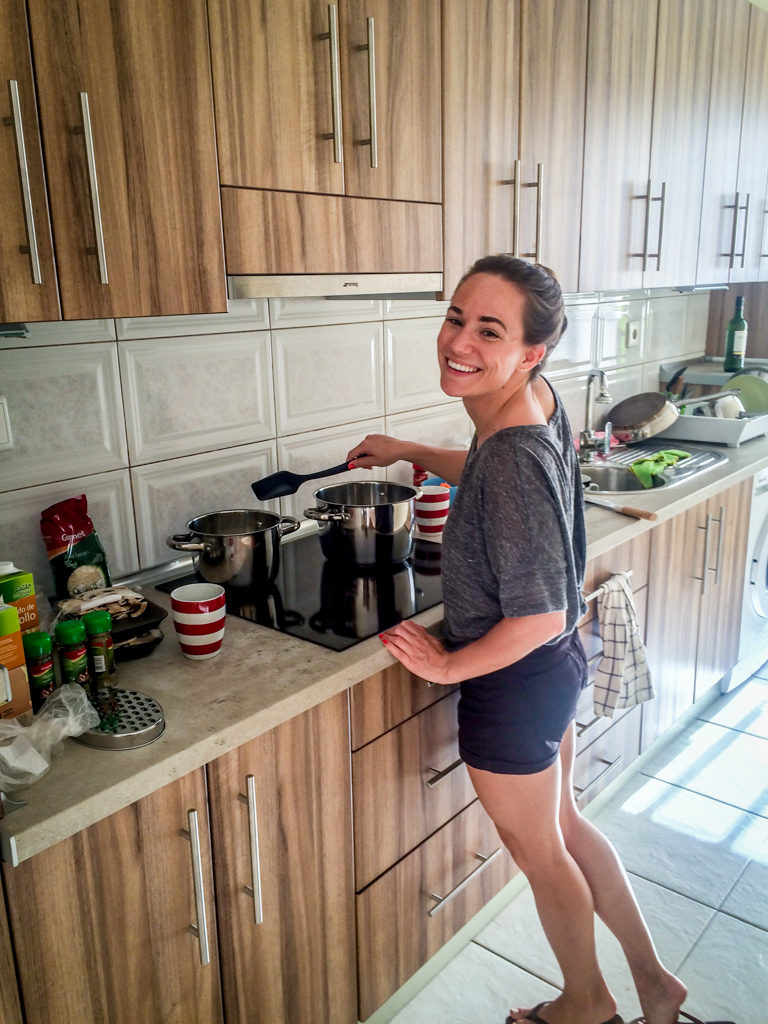
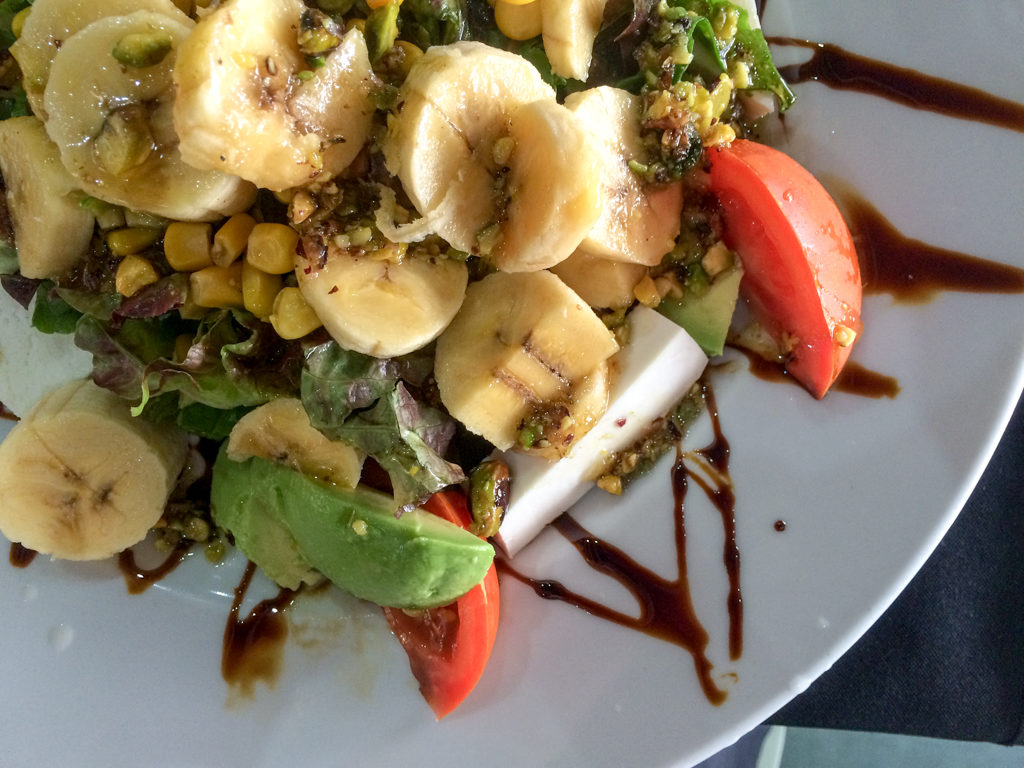
The lessons I learned from this experience were too numerous to count, really, which should tell you right away that I was extremely happy with the decision to give co-living and co-working a try. It was like hitting the reset button at a time when I really needed to reset a few things in my life–my work habits, my health, my mindset.
There were a few key takeaways, however, that came from my experience co-living and co-working with Hub Fuerteventura that will inform many of my future decisions on where to travel and how I plan to live and conduct my work.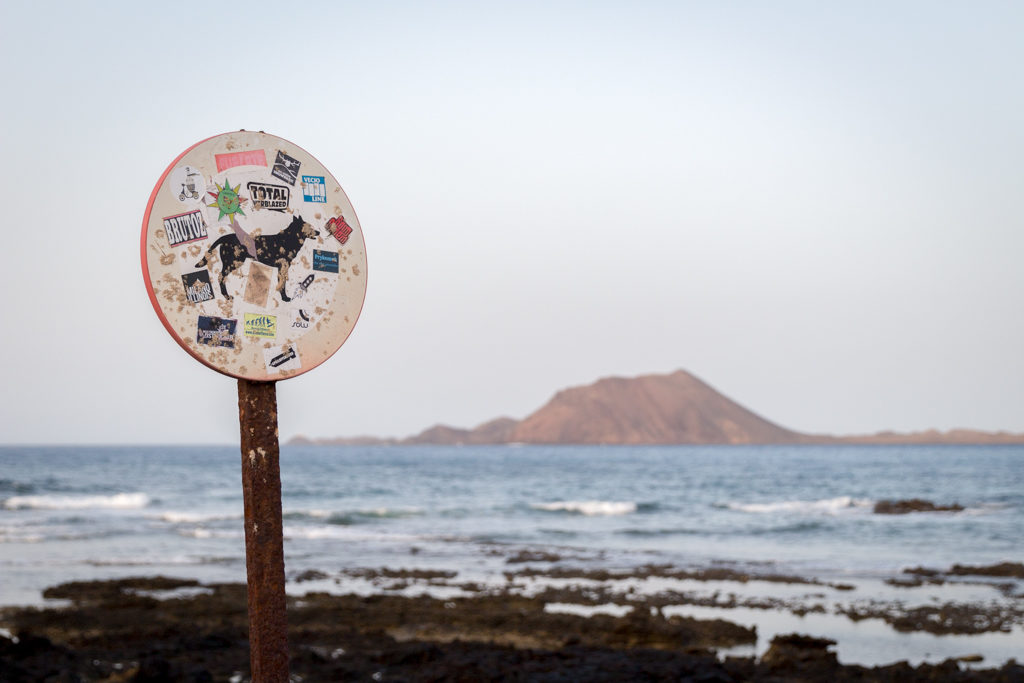
Dorm living is no longer an option for me.
Upon my arrival to Hub Fuerteventura in late July, high season in the Canary Islands was in full swing. In my correspondence with Sebastian prior to this, he’d informed me that my timing would make it tough to arrange for a private room for the entire period, but that he’d do his best (he was really quite accommodating and communicated very efficiently, which I was quite grateful for). He made some last-minute changes which allowed me to move into a private room in one of his apartments after just two nights in a dorm in the shared house named Villa Carmen.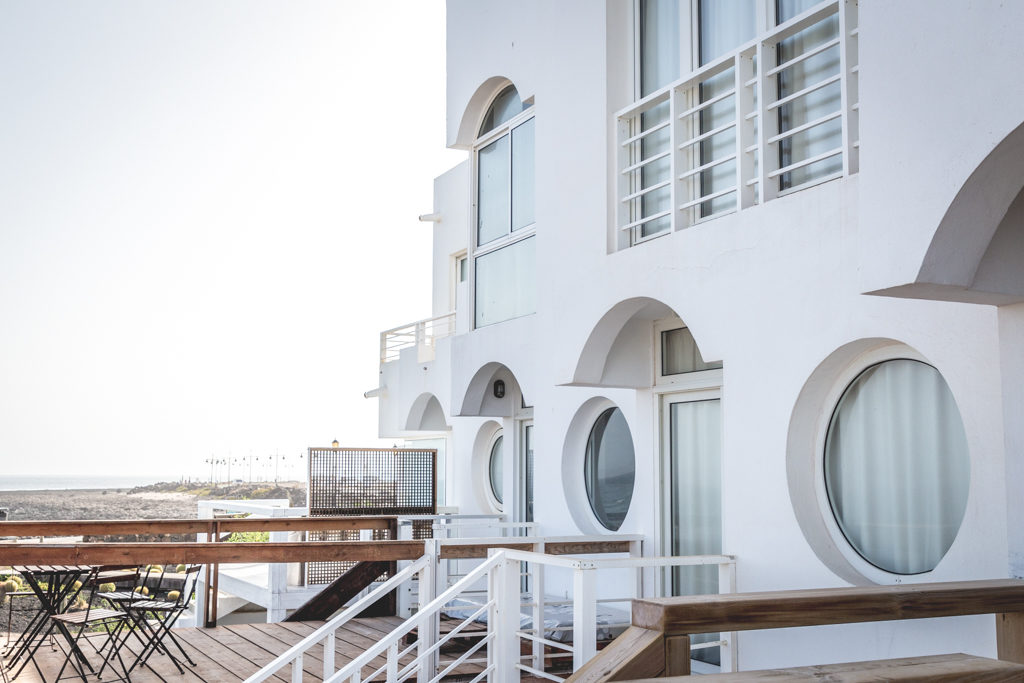
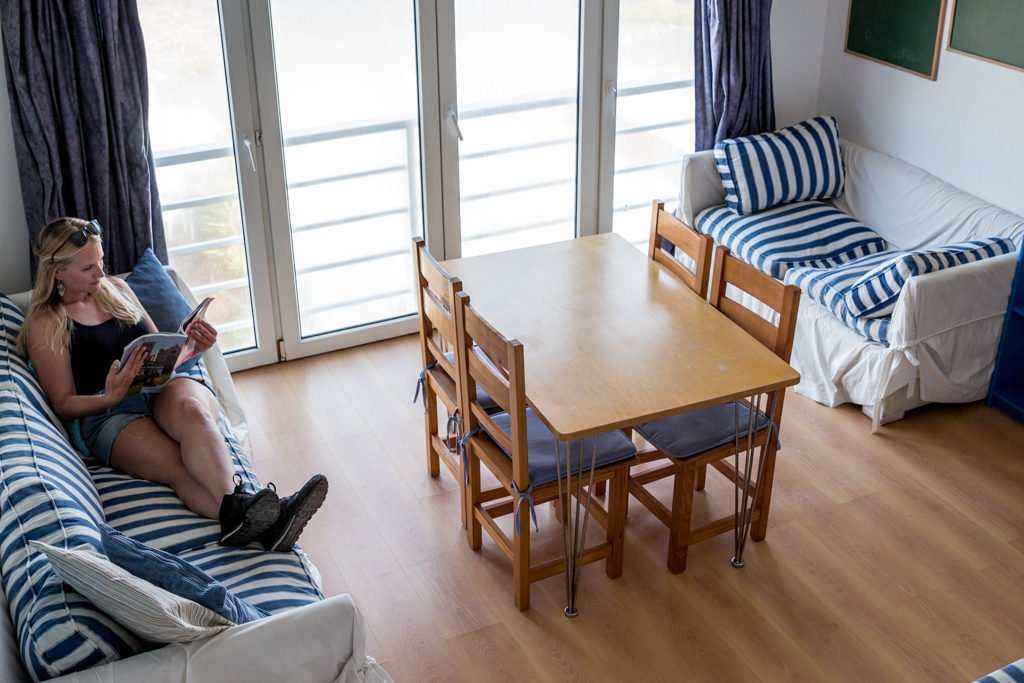
Those first two nights in Villa Carmen passed by with little consequence. I met some lovely people, mostly travelers visiting the island for some combination of Spanish and surf lessons, and my roommates were agreeable and conscientious. The house itself was large, comfortable, and equipped with every amenity I could have needed, even for a much longer stay.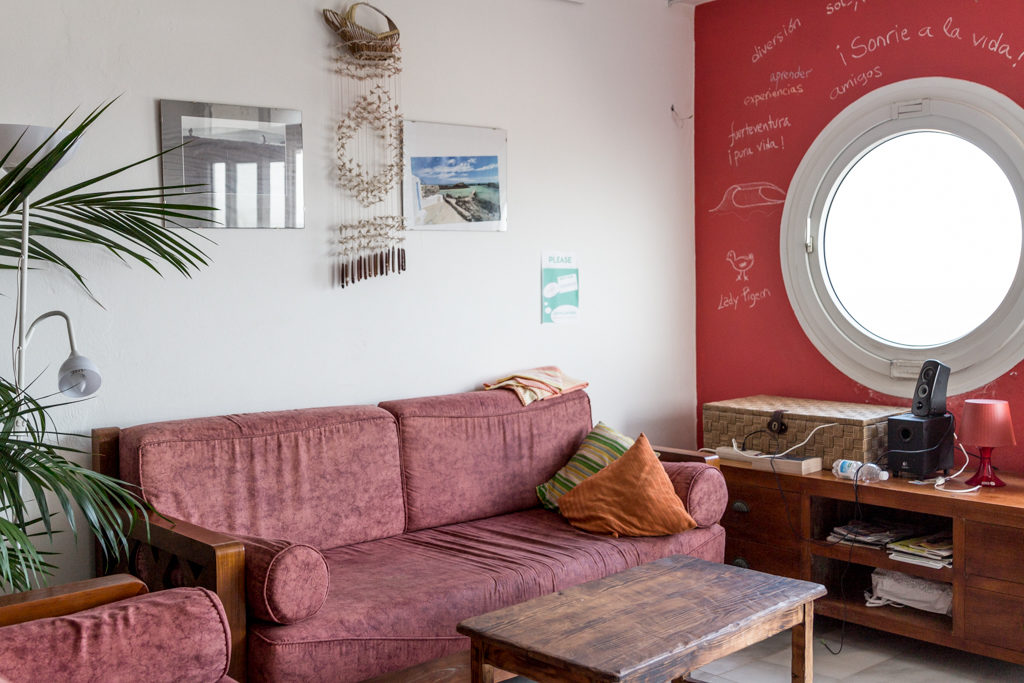
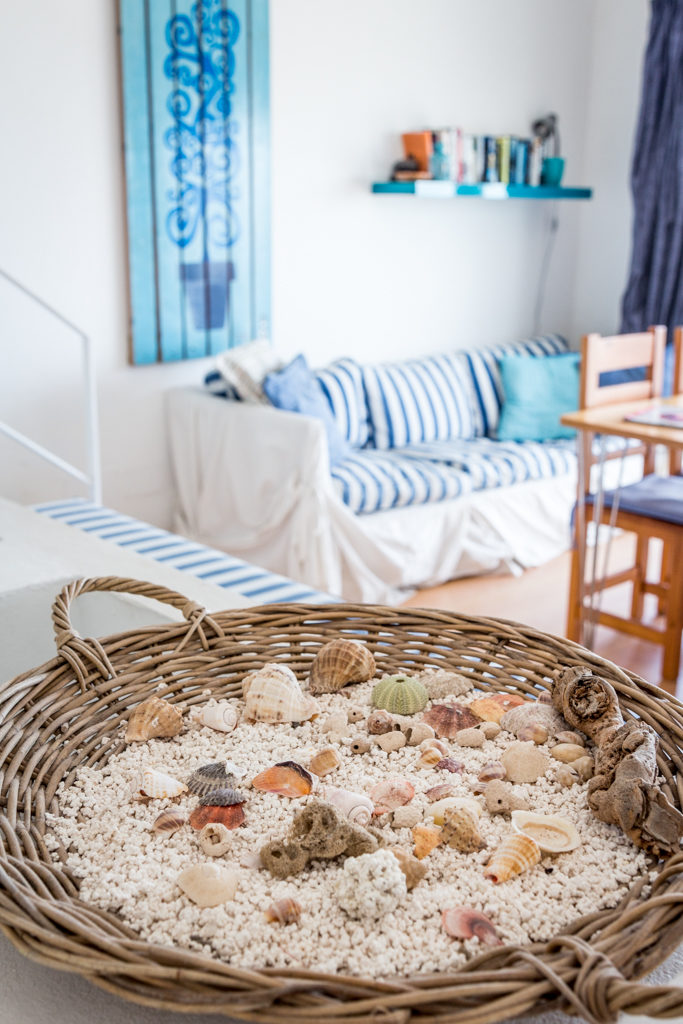
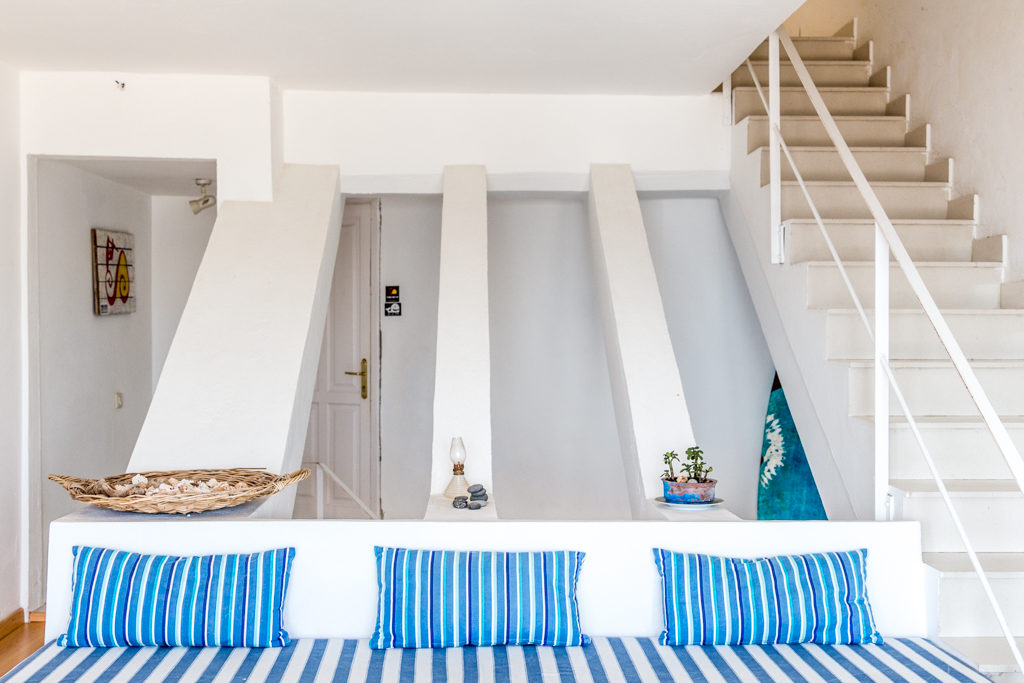
Villa Carmen’s most charming attribute is its location at the very northern tip of Corralejo facing the wild Atlantic. You can practically feel the ocean spray kissing your cheeks while standing on the house’s outdoor patio, and you fall asleep to the sound of the lapping waves at night. The view of Lanzarote to the northeast certainly didn’t hurt, either.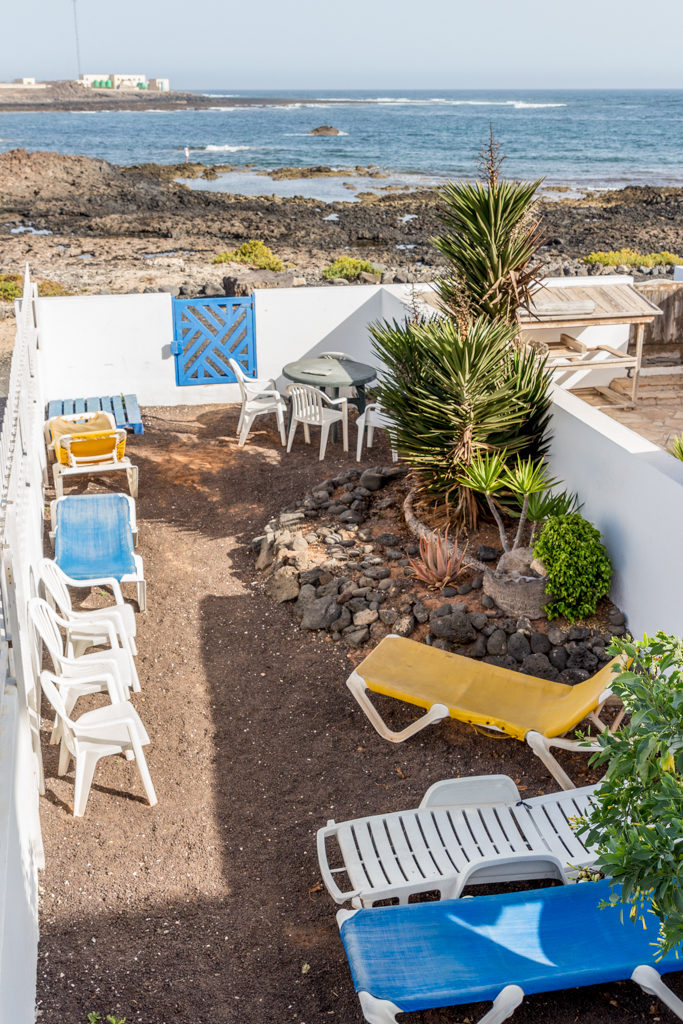
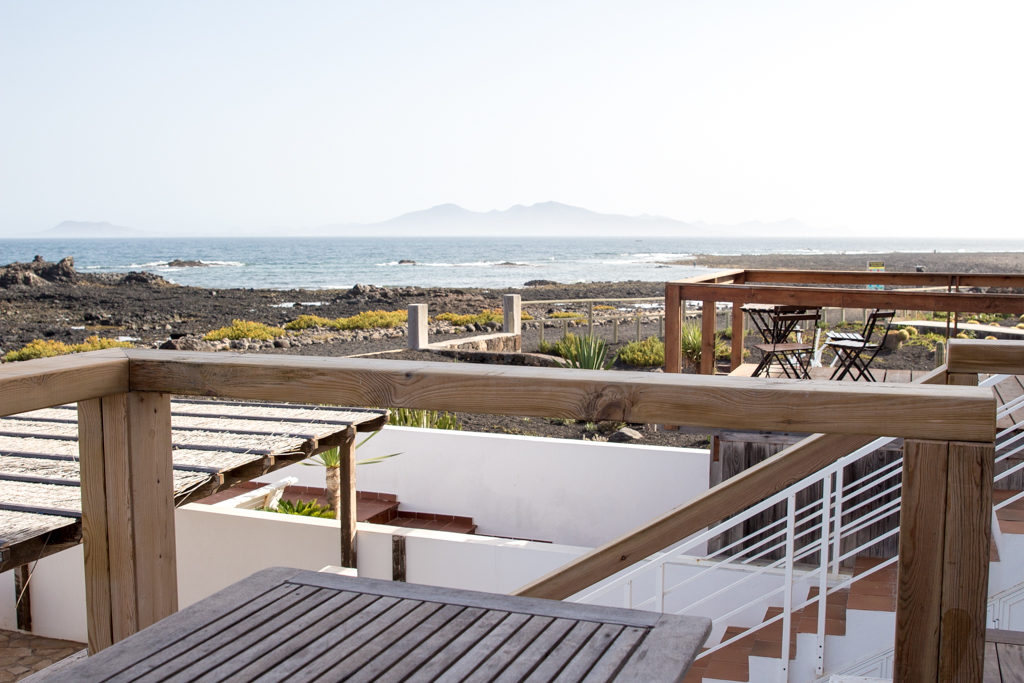
The kitchen is fully stocked with cooking utensils and also houses a basket of leftover goods from previous guests, full of items free for the taking. It reminded me in many ways of living in a small family-owned hostel. The snug quarters and shared spaces meant people were constantly interacting and getting to know one another. Even after leaving Villa Carmen, I came back on a few occasions for home-cooked dinners accompanied by wine and enjoyable conversation. It embodied the sense of community that attracted me to co-living in the first place.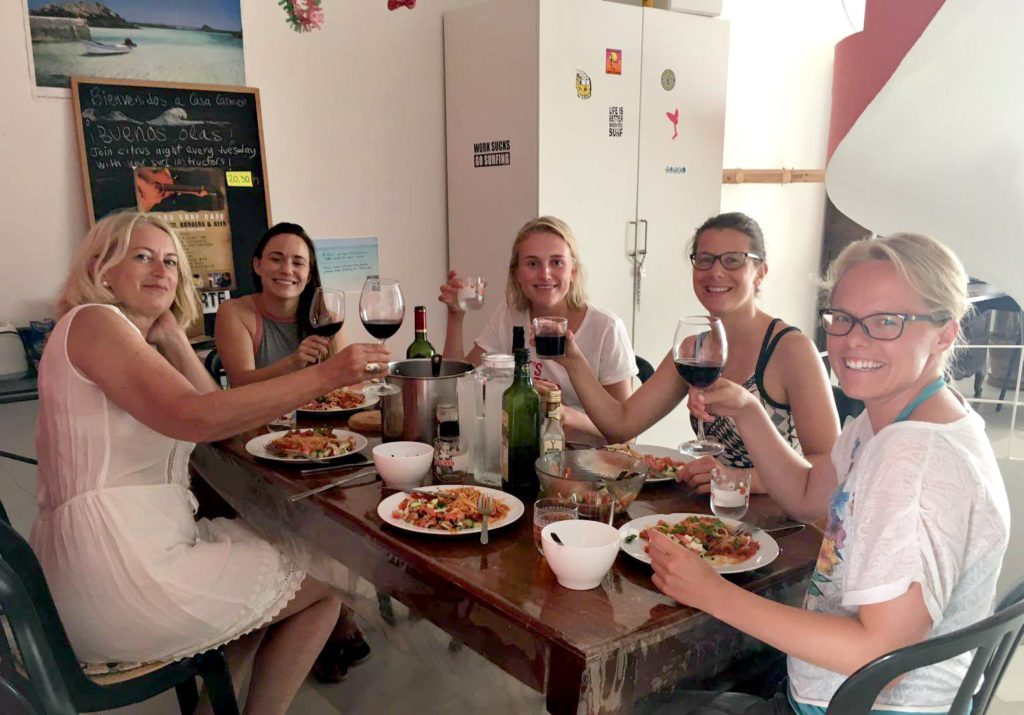
All that being said, moving into my private room in the shared apartment down the road made my heart soar. I love meeting new people, I really do, but these days I value my personal space and privacy more than ever before. I moved in on the same day as a spunky woman from Holland named Atty with whom I would become very good friends over the course of the next few weeks.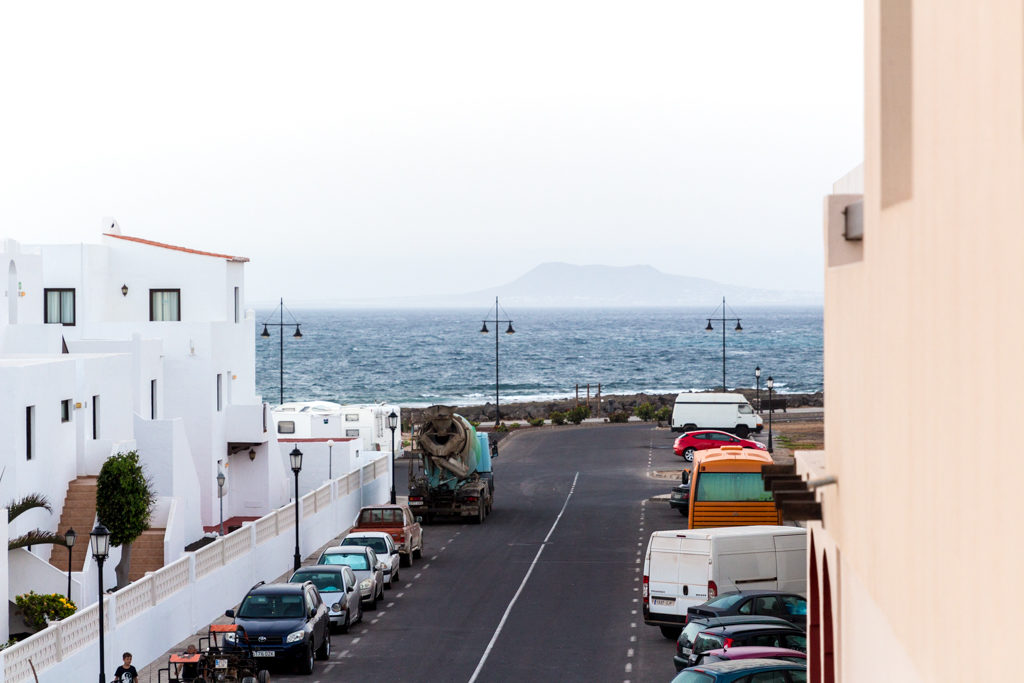
Finding people you mesh with as roommates can be a total crapshoot, so we were quite fortunate to get along so well. And when our third roommate moved in a week later, she only added to the positive apartment vibes. Brooke (from Australia), Atty and I became three buenas amigas, opening ourselves up to these new and unexpected friendships. I am and always will be so grateful for these women’s presence in my life at that precise moment and the many lessons they imparted to me.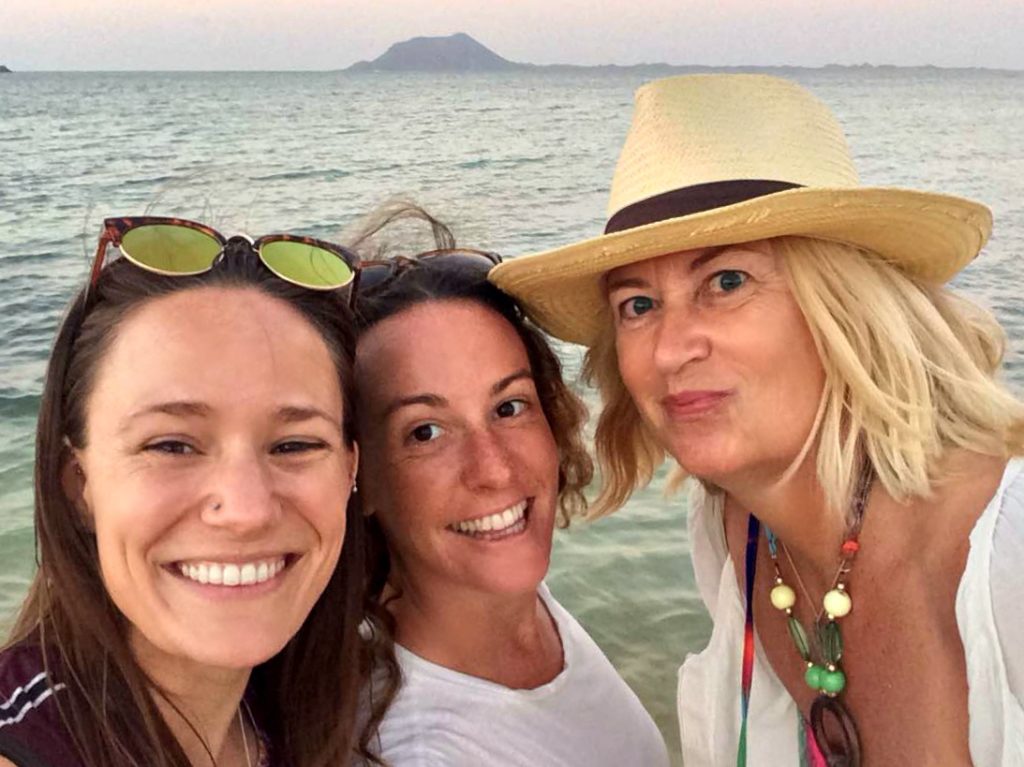
After hearing that another girl had foregone her private room in order to stay in the shared house, I had briefly questioned my decision to live alone. Was I being too closed-minded about sharing a space with so many other people? Would I be missing out on the community that I came all the way here for?
That insecurity faded quickly, though, as I found my own small yet tight-knit community of three right there in my own apartment, with two smart, accomplished women who also valued their private time and personal space. We lived our lives independently of one another but always made time for shared activities. We cooked meals together, explored the island together, and had nights out on the town together. It was everything I could have asked for.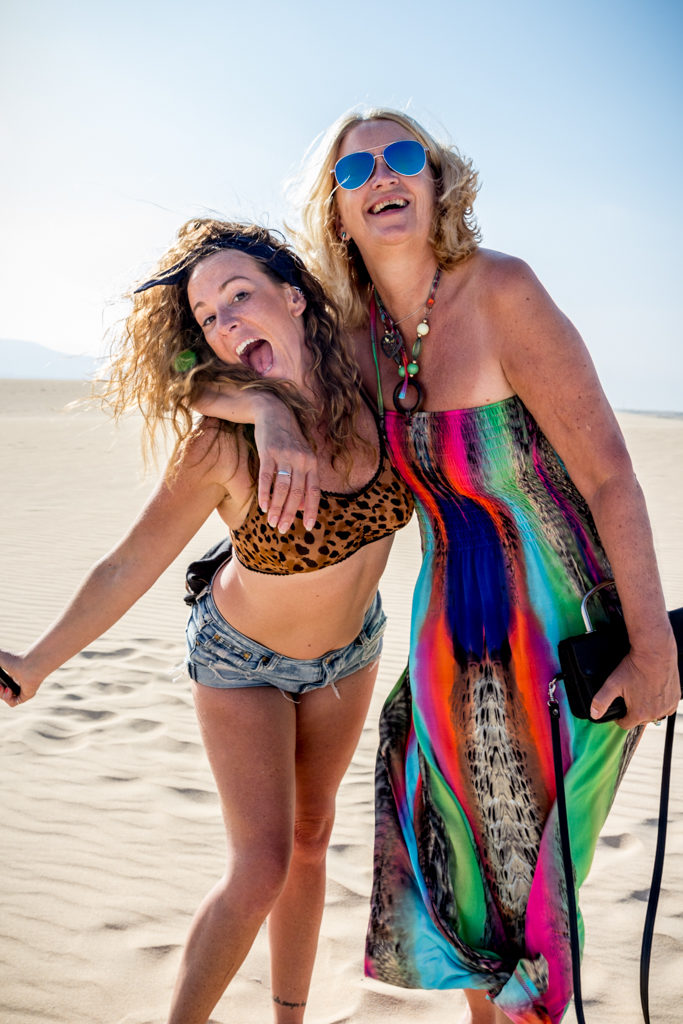
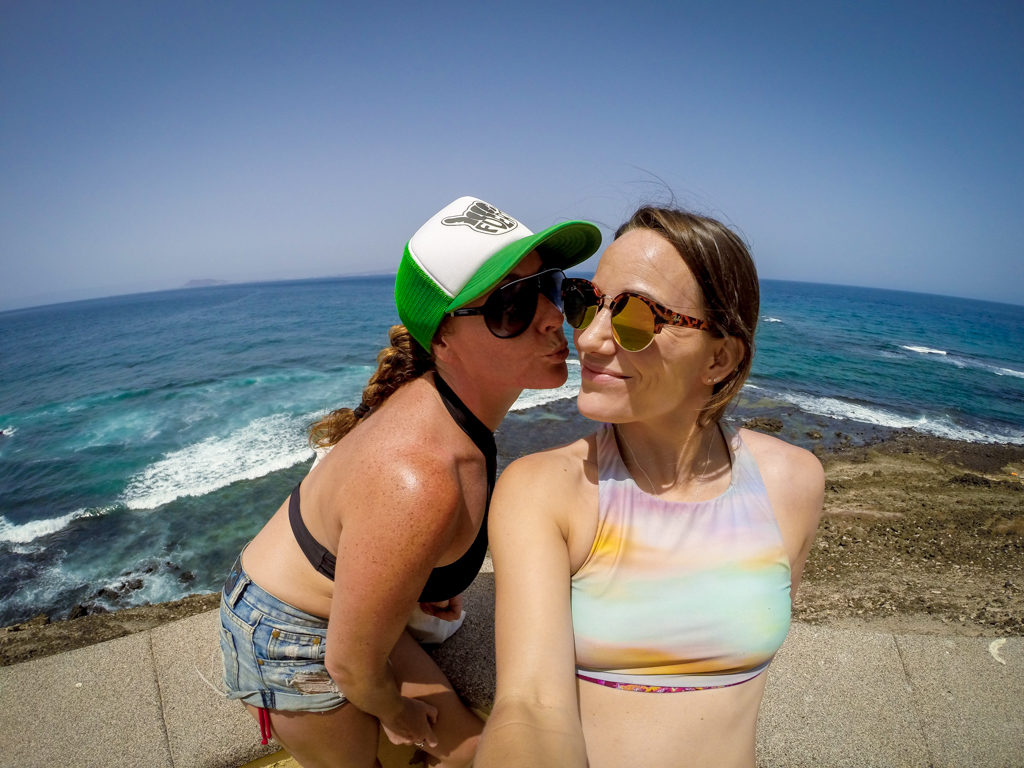
The apartment itself was one I would have loved to rent on any old day! It was gorgeous three-bedroom that came fully furnished and was located just a few blocks from The Hub and one block from the waterfront promenade. It even had its own washing machine right there in the kitchen! No dishwasher, but we didn’t mind. A cleaning service was provided once a week, and we had everything we needed in case we wanted to do some of the chores ourselves (on beach days, we always dragged in a lot of sand). The kitchen was well outfitted for our cooking needs, including some basics like oil and a few spices.
It was also a great reminder of why dorm living is no longer a good fit for me. As an introvert, I really do need time to myself to recharge after socializing. It almost seems like the older I get, the more time I need, and I seem to be enjoying the time spent in my own company more than ever before. I think a private room in a shared apartment is the perfect compromise for me right now. I can have my privacy when necessary, but I’m compelled to socialize as well. The apartment also acted as my primary workspace, which I doubt would have been possible in a house shared with a dozen other people.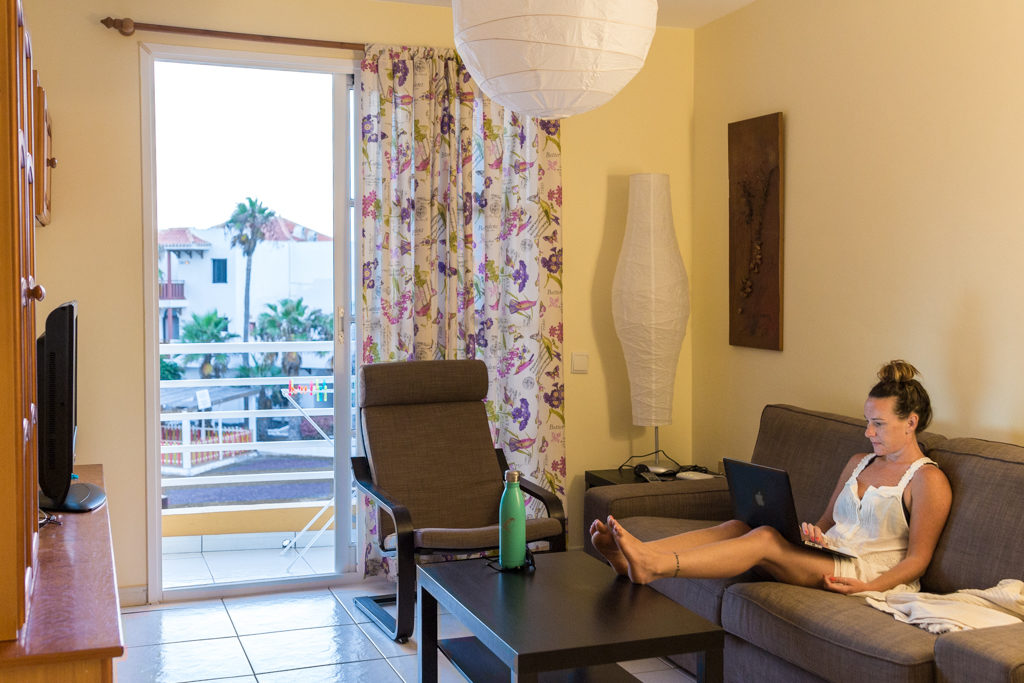
I don’t love working in an office environment.
There were many upsides to having an office at my disposal as a workplace. On some occasions, my apartment was too noisy and distracting to get work done. The hotel across the street was cutting down trees with a chainsaw for something like two weeks, for example, or at times I just needed some space from my chatty roommates. On other days, I simply felt uninspired and needed a change of scenery to get my creative juices flowing again. In these moments, having The Hub as an alternative workspace was ideal.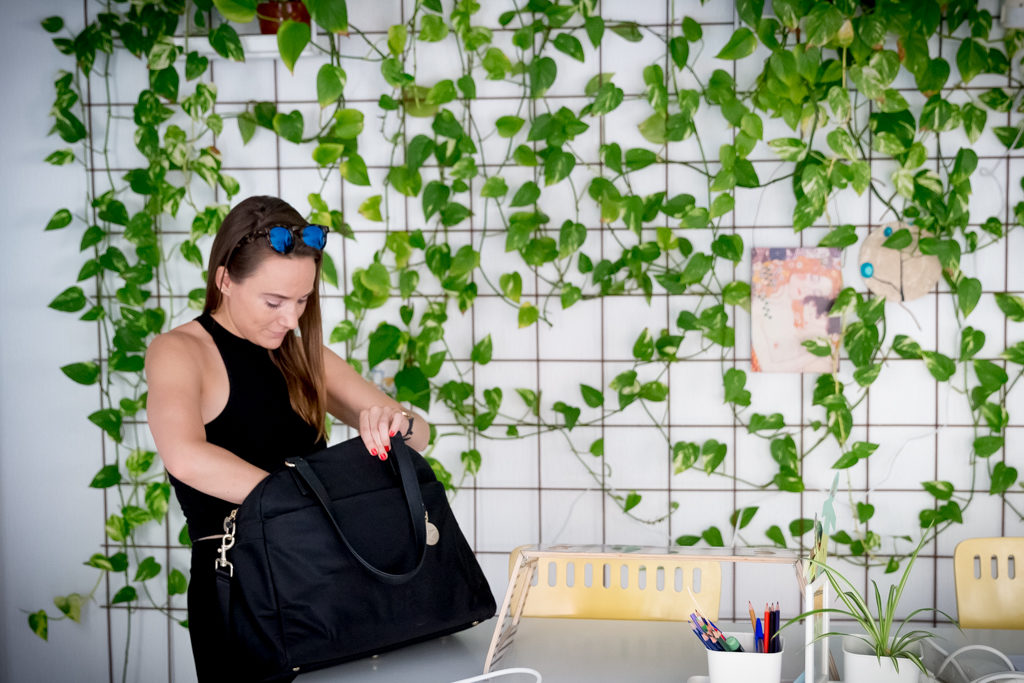
I also appreciated the readily available coffee for when I needed an afternoon pick-me-up that wasn’t made from dehydrated crystals. The office was equipped with plates, cups, utensils, a refrigerator, and filtered drinking water as well, not to mention it was available for us to use 24/7 (we each had our own key so we could access it whenever we wanted).
The Hub also provides bicycles (they looked far too tall for me so I never used one, but others did) and organizes weekend activities like surf trips, and everyone communicates via a Slack group so you can stay informed even when not present in the office. And generally speaking, the WiFi at The Hub was more reliable than the connection at my apartment.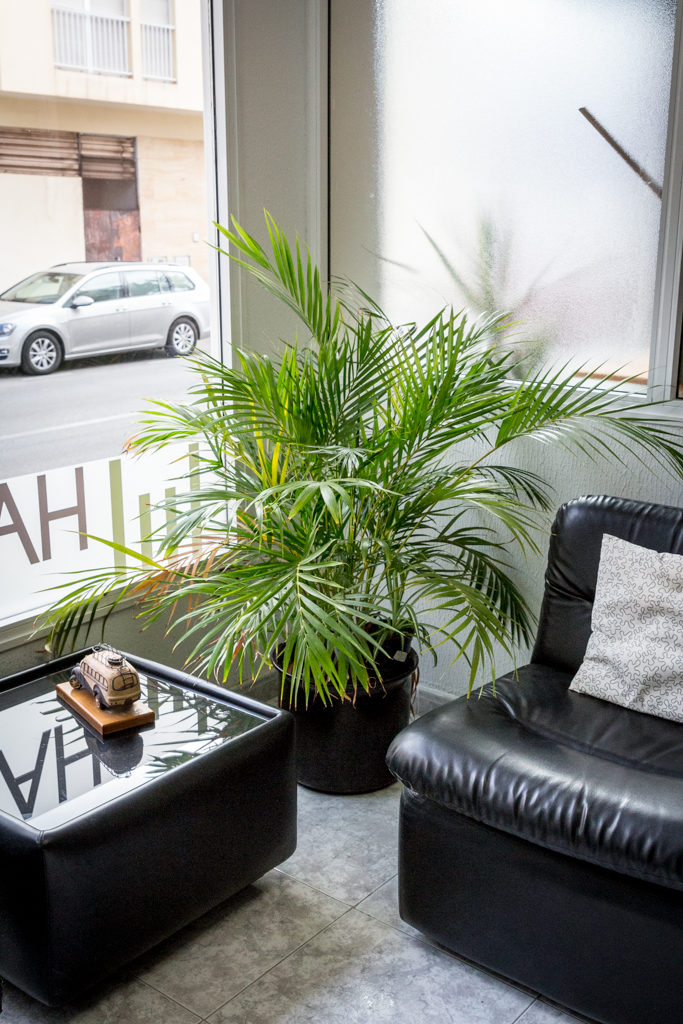
But what I took away from this experience, ultimately, was that working in an office-like environment isn’t a good long-term solution for me. It felt all-too-familiar, serving as a vivid reminder of every office job I’d ever worked (and every single one of which I loathed, but who’s counting?).
I decided to pursue location independence for the freedom from the schedules that come with a “normal” job, but also the environment. And don’t get me wrong–there was nothing stuffy or sterile about Hub Fuerteventura’s co-working space. It was welcoming, it was comfortable, and most importantly, it was laid-back. 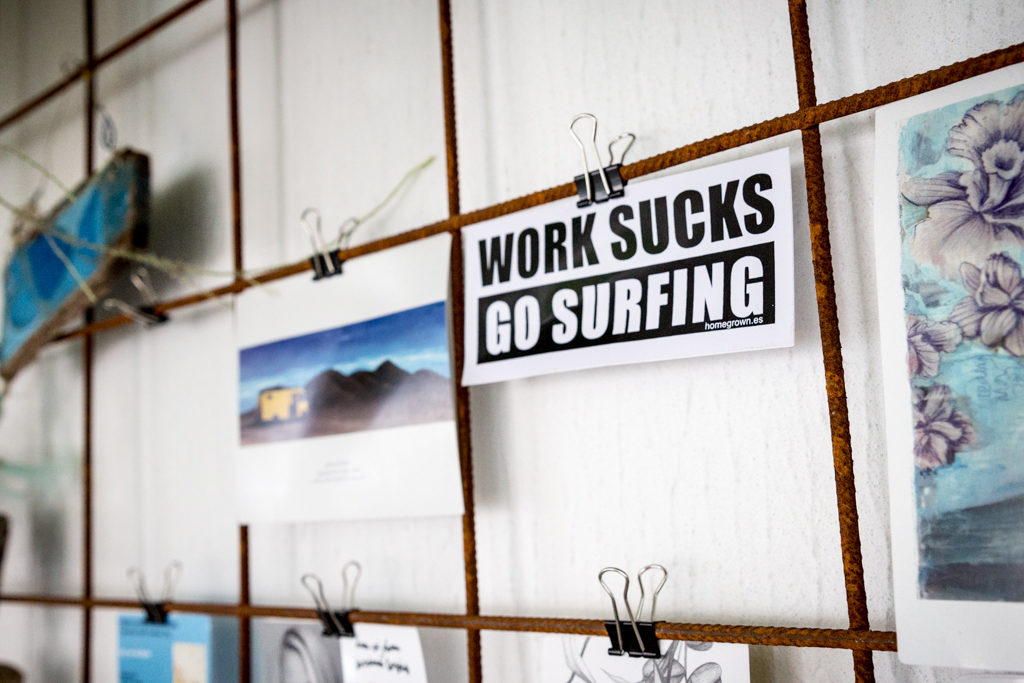
Everyone worked on their own projects and came and went as they pleased throughout the day. But on those few occasions when I arrived in the office at 9 in the morning and left to return to my apartment after 6 in the evening, having only taken a break to grab a quick lunch, it reminded me far too closely of all of the things I left behind.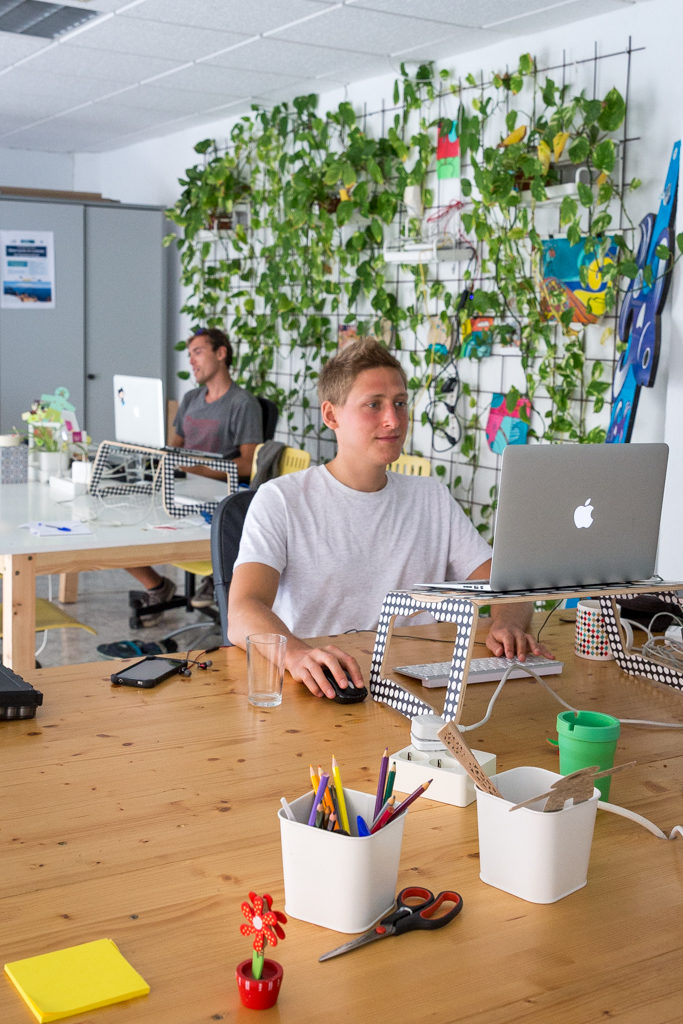
For that reason, I spent the large majority of my days happily working from the airy co-living apartment that I shared with a maximum of two other people. In the apartment, I could get up midday for a yoga break, to make myself a snack, to do some laundry or run errands before the shops closed for siesta, or even just take my own siesta if I needed to without having to pack up my whole workstation and change locations.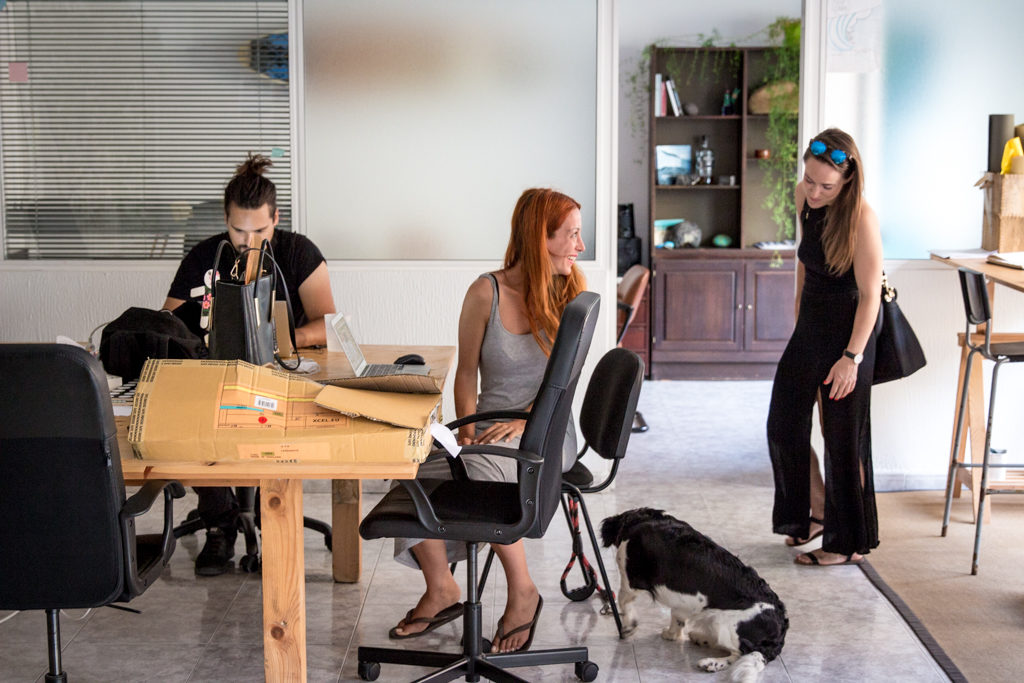
With the exception of my chainsaw-happy friend next door, there were fewer distractions in my apartment than the co-working space and I tended to feel more productive when I could take frequent breaks (without totally wrecking my workflow) and work in complete silence (more or less, depending which roommate was home). I had moments of great productivity in the office, to be sure, but the simple fact that it felt like an office was enough to outweigh most of the positives for me.
I did appreciate having choices when it came to my workspaces and the ability to leave my apartment when I needed to, and given the relatively low cost to access The Hub (€150 per month) it’s a great option for people who don’t like to work from home. For me, however, I think a better option is to simply work from home and pay for one-time access to a co-working space if and when the mood strikes instead of a monthly membership fee.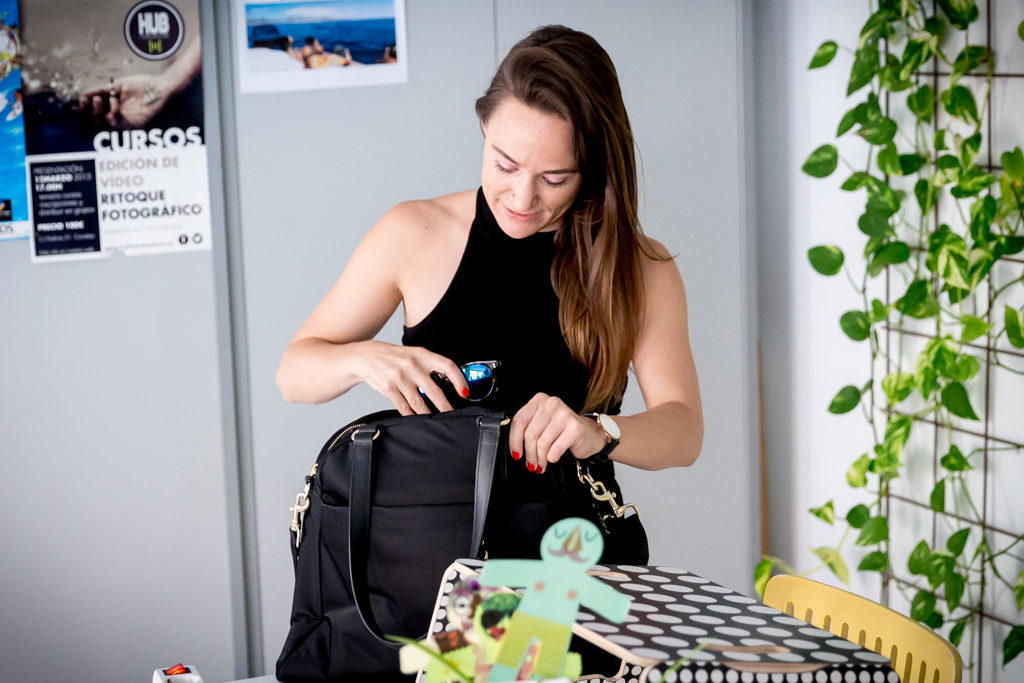
Collaborating with and learning from others made the entire experience worthwhile.
Co-living and co-working with Hub Fuerteventura was an exercise in quality over quantity. Although I didn’t meet a large number of people over the course of the month, the relationships I did form were meaningful and worthwhile. I didn’t know who I would meet, but even the people with jobs and experiences seemingly unrelated to what I was doing had valuable insights to offer me.
To be surrounded by people with similar ideals and life goals was a breath of fresh air. For the first time in many months, I could talk freely about the ideas swirling around in my head without fear of making anyone’s eyes glaze over with boredom; instead, the more common response was listening intently before providing a thoughtful, intelligent response or constructive criticism. More often than not, this all took place over a meal and sangria (or the other favorite Spanish libation, vermouth).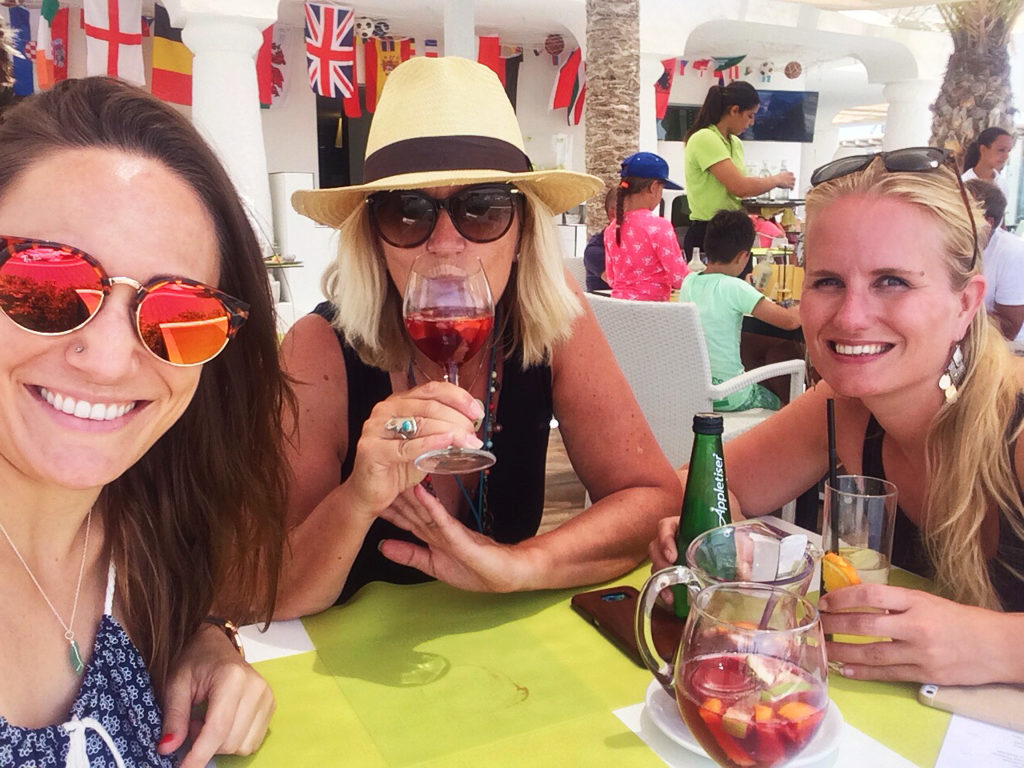
I had many of my old beliefs challenged, I received honest feedback on my website, my eBook, and any other new ideas I came up with, and I was pushed to think creatively and in ways that I simply wasn’t used to thinking. I learned even more about myself throughout this process, too, and was able to sharpen my focus for my business moving forward. To call it a month of growth would be a grave understatement.
I hadn’t even realized how desperately I’d needed this. On that remote desert island off the coast of Africa, I felt the beginnings of that sense of belonging I’d been searching for, in spite of the fact that the place itself never really felt like home. I did become quite fond of little Corralejo, but where I was mattered little when compared to who I was with.
My Recommendation to Other Digital Nomads and Remote Workers
I didn’t just embark on this journey to Fuerteventura with my own interests in mind, but with those of my readers as well. If you’ve ever wondered what co-living and co-working would be like, I hope to have shed some light on the topic. And if you’ve ever considered doing it yourself but weren’t sure if it would be worth it, I’m here to tell you, it will be.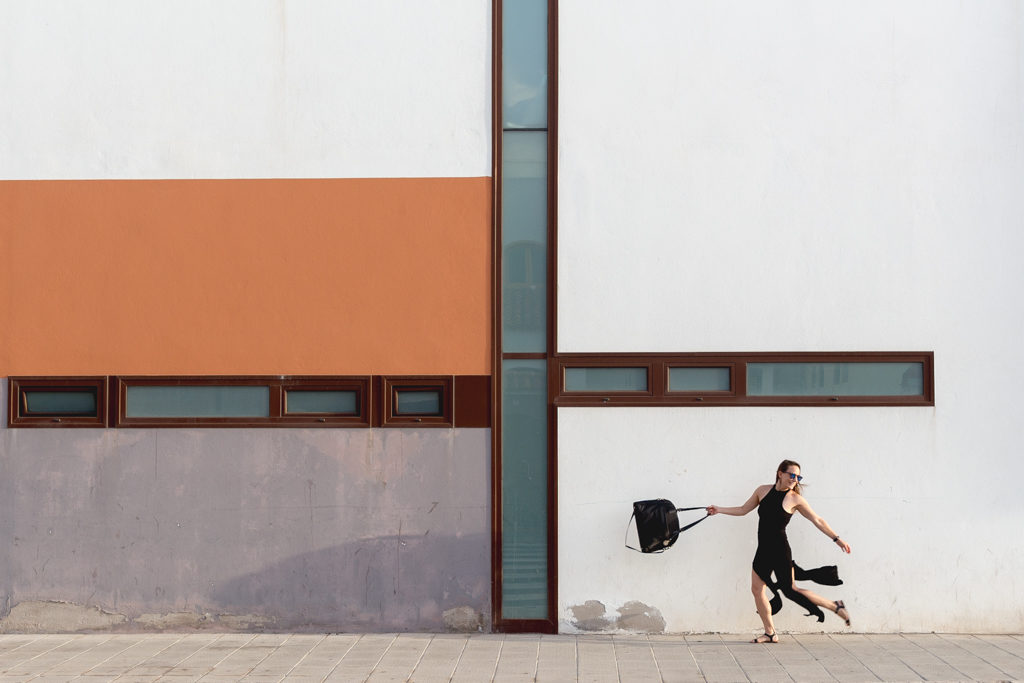
Travel is always worthwhile in my opinion, as there is always something new to learn no matter who or what you encounter. You often learn the most about yourself in the times that it feels like you are struggling the most. Sometimes, it’s necessary to get a little bit of help from those around you to continue learning and growing, and particularly if you’re building a business on the road, surrounding yourself with other entrepreneurs is one of the absolute best things you can do.
I can tell you beyond a shadow of a doubt that I will try co-living and co-working again in the future. I’m not sure when, where, or in what capacity, but I no longer need convincing of the positive outcomes it can produce.
